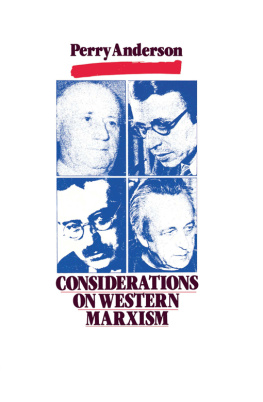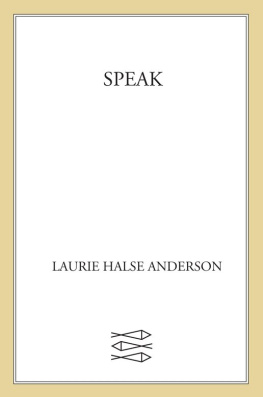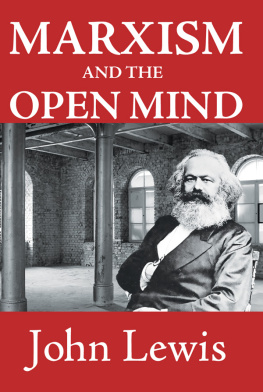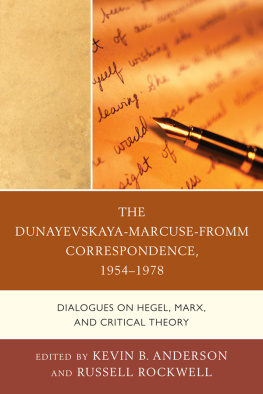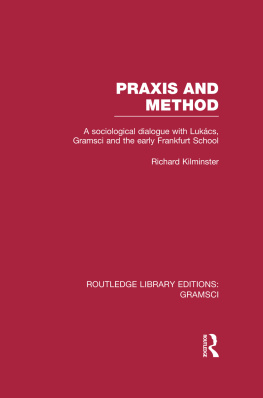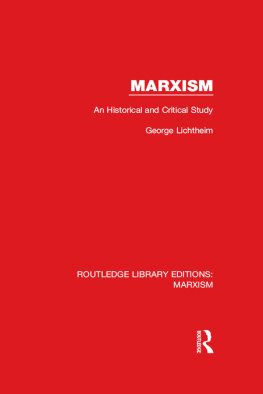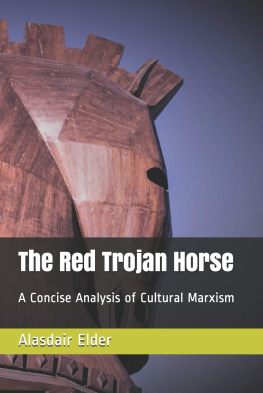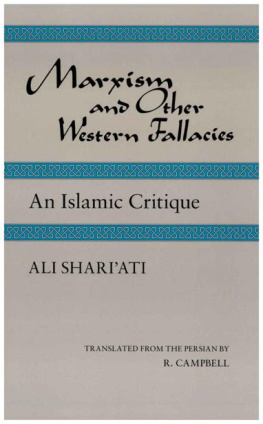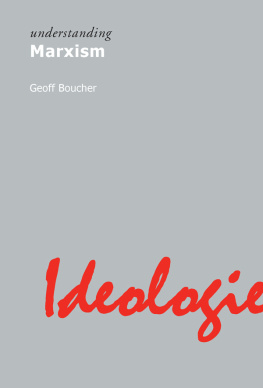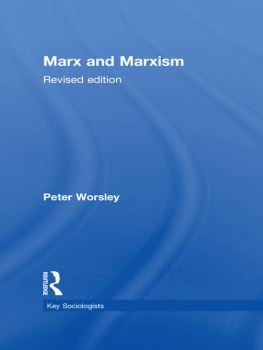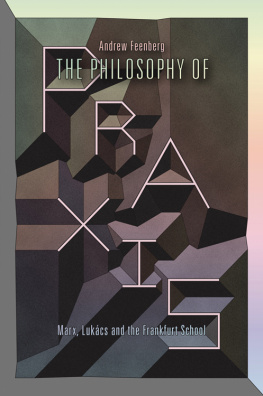
This synoptic essay considers the nature and evolution of the Marxist theory that developed in Western Europe, after the defeat of the proletarian rebellions in the West and the isolation of the Russian Revolution in the East in the early 1920s. It focuses particularly on the work of Lukcs, Korsch and Gramsci; Adorno, Marcuse and Benjamin; Sartre and Althusser; and Della Volpe and Colletti, together with other figures within Western Marxism from 1920 to 1975. The theoretical production of each of these thinkers is related simultaneously to the practical fate of working-class struggles and to the cultural mutations of bourgeois thought in their time. The philosophical antecedents of the various schools within this traditionLukcsian, Gramscian, Frankfurt, Sartrean, Althusserian and Della Volpeanare compared, and the specific innovations of their respective systems surveyed. The structural unity of Western Marxism, beyond the diversity of its individual thinkers, is then assessed, in a balance-sheet that contrasts its heritage with the tradition of classical Marxism that preceded it, and with the commanding problems which will confront any historical materialism to succeed it.

Considerations on
Western Marxism
First published by NLB, 1976
Perry Anderson, 1976
Verso Edition first published 1979
Perry Anderson, 1979
Second impression, 1984
Third impression, 1987
Verso Books
UK: 6 Meard Street, London W1F 0EG
USA: 20 Jay Street, Suite 1010, Brooklyn, NY 11201
www.versobooks.com
ISBN-13: 978-0-86091-720-5 (PB)
ISBN-13: 978-1-78478-789-9 (US EBK)
ISBN-13: 978-1-78478-788-2 (UK EBK)
Contents
A few words are necessary to explain the occasion and nature of this short text. Written in early 1974, it was designed as an introduction to a collection of essays by various authors on recent theorists of European Marxism. Fortuitously, the educational publishing house which had commissioned this reader ceased to exist a month later. The cancellation of the project deprived the text of its original purpose. These circumstances account for certain of the anomalies of the survey below, if they do not necessarily excuse them. For the essay published here is concerned with the general coordinates of Western Marxism as a common intellectual tradition; it does not contain a specific scrutiny or a comparative evaluation of any of the particular theoretical systems within it. This was to be the province of the studies to which it was a preamble. These were to constitute a series of critical expositions of each of the major schools or theorists of this tradition from Lukcs to Gramsci, Sartre to Althusser, Marcuse to Della Volpe. The present text, focused on the formal structures of the Marxism that developed in the West after the October Revolution, abstains from substantive judgements of the relative merits or qualities of its main representatives. In fact, of course, these have not been equivalent or identical. A historical balance-sheet of the unity of Western Marxism does not preclude the need for discriminating estimates of the diversity of achievements within it. Debate over these, impossible here, is essential and fruitful for the Left.
If, beyond the particular moment of its composition, the text was motivated by more lasting preoccupations, which permit its publication today, it was because it reflected certain problems encountered in the course of work on a socialist journal, New Left Review, over the years. An essay written in the late sixties for this review had tried to delimit One of its principal themes was that English culture had significantly lacked any tradition of Western Marxism in this epoch an absence registered in an unequivocally negative light. Much of the work of New Left Review in this period was devoted to a conscious attempt to start, in some sense, to remedy this native deficiency by publishing and discussing, often for the first time in Britain, the work of the most salient theorists from Germany, France and Italy. This programme, pursued methodically, was reaching its end by the early seventies. Logically, a concluding balance-sheet of the legacy which the Journal had sought to make available in an organized form, was needed. It was in this perspective that the themes considered here were first evolved. The essay below on a continental tradition from Europe is thus in part a sequel to the earlier account of an insular pattern in England. It was the product of an increasing awareness that the heritage that Britain had missed, to its detriment, was itself missing in certain of the classical traits of historical materialism. A greater equity of judgement, in assessing the national variations and international fate of Marxism in this epoch, was a tacit consequence.
Resuming as it did one of the central concerns of the journal, the text was discussed and criticized by colleagues on New Left Review, from a wide range of viewpoints, shortly after the reader for which it had been written was abandoned. In revising the text for publication, I have tried to take account of their reflections and criticisms. I have also emended it where I thought local improvements could be made to its argument, and given references to later developments. The document that remains has been modified as far as its intrinsic form permits. Since its initial composition, however, certain of its emphases now appear to me to pose problems that admit of no ready solution within the text. These misgivings are not amenable to any reworking of the present essay. They are therefore consigned to an afterword which sets out further unanswered questions for any enquiry into the future of historical materialism.
A decade after its original composition, this essay calls for a few supplementary lines. The collection for which it was initially designed as an introduction appeared as a separate book in 1977, Western MarxismA Critical Reader (NLB), reprinted in 1983 (Verso). That volume, with its detailed studies of individual thinkers, represents the intended companion and control of the general survey attempted here. The essay on Gramscis theory of hegemony, promised as a more personal pendant to this text, was published in New Left Review No 100, November January 1977, as The Antinomies of Antonio Gramsci. These were the immediate complements to Considerations on Western Marxism.
Among the specific reflections with which the text ends was the expectation, and hope, that Marxist history and philosophy would cease to lead such separate lives, and start to meet in a common socialist culture in which each took the challenge and stimulus of the other. The first major occasion of this encounter was the subject of a subsequent book, Arguments within English Marxism (1980), which reviews the cumulative work of Edward Thompson, and the significance of its critique of the thought of Louis Althusser. The wider pattern of development of Marxism in the West, since the mid seventies, I have tried to resume in the lectures entitled In the Tracks of Historical Materialism, published in 1983a study that is not quite a sequel to Considerations on Western Marxism, since its focus includes currents of thought rival or antagonistic to historical materialism, as well as the fate of Marxism itself. But it does start with the series of forecasts with which the earlier work concludes, and then looks at how the real history, intellectual and political, of the subsequent decade treated them. Many of these predictions, I argue, have been fulfilled; others, significantly, have not. The lectures discuss the directions and reasons of the changes I did not foresee, and in doing so make a number of criticisms of particular judgements, of thinkers or traditions, in the text at hand. For readers interested to pursue my present view of the field, then,

